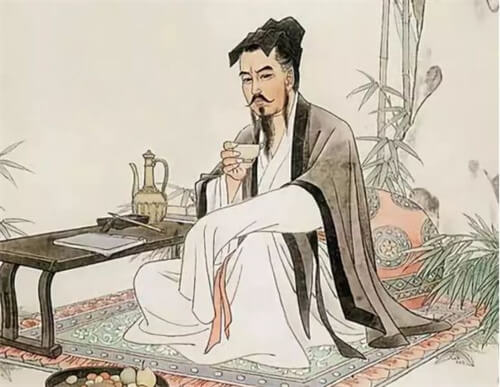
再授连州至衡阳[1]酬柳柳州[2]赠别
刘禹锡
去国[3]十年同赴召,
渡湘千里又分歧[4]。
重临事异黄丞相[5],
三黜[6]名惭柳士师[7]。
归目并随回雁尽,
愁肠正遇断猿时。
桂江东过连山下[8],
相望长吟有所思[9]。
注释:
[1] 连州、衡阳:连州,今广东连县。衡阳,指唐代横州治所。
[2] 酬柳柳州:酬,答谢之意,在这里指答复柳宗元《衡阳与梦得分路赠别》一诗。柳柳州指柳宗元,当时被贬为柳州刺史。
[3] 去国:就是离开京都的意思。去,离开。国,指长安。
[4] 分歧:分路赴任,柳宗元由水路至柳州,刘禹锡由陆路至连州。歧,岔路、分手之地。
[5] 黄丞相:指汉代的黄霸,字次公,淮阳阳夏人,曾两次任颍川太守。
[6] 黜(chù):贬;罢免。
[7] 柳士师:指柳下惠,春秋鲁国人,居处曰柳下,死后谥号惠。士师,狱官,主察狱讼之事。
[8] “桂江”句:桂江,古代是广西水道的总称,有时也特指漓江。连山,指今天的黄连岭,在连州西南方向。
[9] 有所思:古乐府题名,在这里是借用字面意。
Farewell to Liu Zongyuan in Exile
Liu Yuxi
Recalled together after an exile of ten years,
Again we’re banished for long miles and say adieu.
We reappear but unlike our noble compeers;
Thrice in exile I feel I’m unworthy of you.
We watch returning wild geese till they’re out of sight;
We’re sad to hear the monkey wail with broken heart.
The Western River flows far from the Southern height.
Longing for each other, can we be kept apart?
The poet was banished to the south and his friend to the west for ten years, both were recalled and again banished together, but the poet said he was unworthy of his friend for he was not so straightforward.
《再授连州至衡阳酬柳柳州赠别》是唐代诗人刘禹锡的作品。此诗是公元815年作者被贬赴任途中对其挚友柳宗元《衡阳与梦得分路赠别》一诗所作的深情回答。全诗结构严密紧凑,行文流畅,用典贴切自然,诗情厚重凝练,深切悲怨,动人心魄,感人肺腑,体现了作者与友人患难与共的真挚情谊。
The poem “Farewell to Liu Zongyuan in Exile” is a poem written by Liu Yuxi, a poet of the Tang Dynasty. The poem is a heartfelt reply to his dear friend Liu Zongyuan’s poem, “Farewell to Hengyang and Meng Score Road”, which was written in 815 AD when the author was relegated to his post. The poem has a tight and compact structure, a smooth flow, apt and natural use of allusions, and a heavy and condensed poem with deep sorrow and grievance, moving and touching the heart, reflecting the sincere friendship between the author and his friend.









